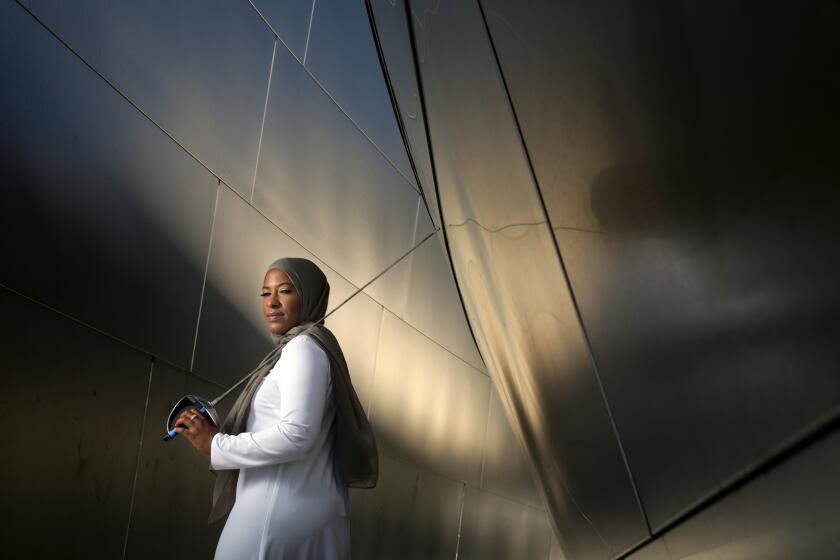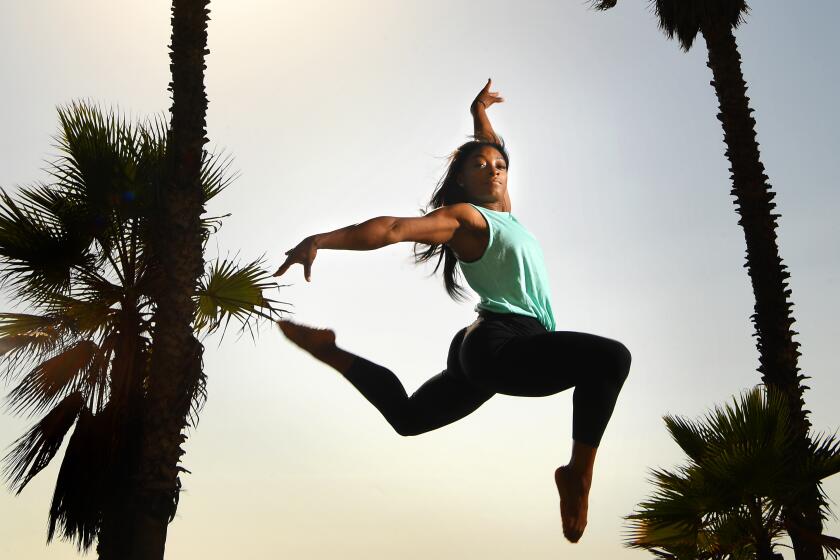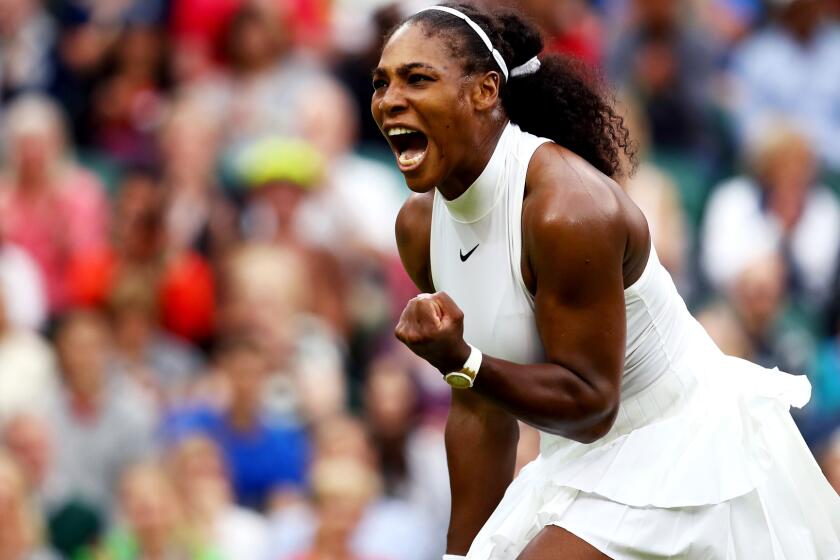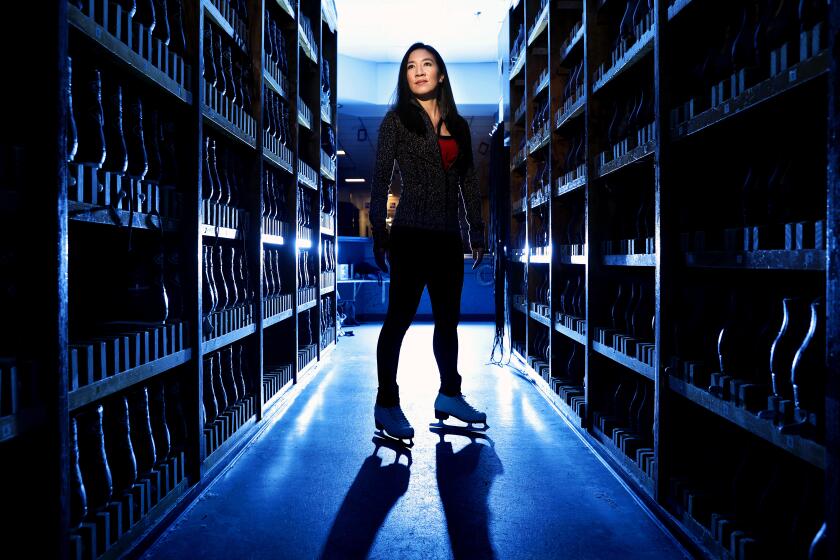- Share via
It was only a few days after the women’s 800-meter final at the track world championships that Caster Semenya posted a defiant message.
“I am the girl from the South African bush,” she tweeted, “who is the most-powerful runner in the world.”
Her words — and their timing — were significant.
The two-time reigning Olympic champion at 800 meters wasn’t allowed on the starting line in Doha, Qatar, last fall. She had to watch from afar, sidelined by an ongoing battle over the question of what it means to be a woman.
The saga began shortly after her startling debut with a gold medal at the 2009 world championships, rivals muttering about her broad shoulders, the set of her jaw and muscular build.
No one accused Semenya, 29, of taking performance-enhancing drugs; the debate centered on her natural, unusually high testosterone levels.
Seven of every 1,000 elite female athletes show signs of elevated testosterone, track officials estimate. They insist this “difference of sex development” constitutes an unfair advantage because the hormone is responsible for strength and mass.
In 2018, the international track federation established testosterone limits, mandating that women who exceed the standard must either take medication to alter their body chemistry or race against men.
Semenya fought back, pursuing her case through a series of hearings and courtrooms. The likes of Billie Jean King and track great Edwin Moses have rallied to her cause, as has the South African government.
The argument goes like this: No one penalized former basketball star Shaquille O’Neal for being unusually tall or sanctioned retired sprinter Usain Bolt for his preponderance of fast-twitch muscle fibers.
A setback in Swiss federal court forced Semenya to withdraw from the world championships. With the 2020 Tokyo Olympics just months away, she has signed to play with a South African women’s soccer team while pursuing an appeal.
The moment that Ibtihaj Muhammad qualified to represent the U.S. in fencing at the 2016 Summer Olympics, her thoughts turned to something beyond sport.
“I am very disappointed to be kept from defending my hard-earned title,” the publicity-shy runner said. “But this will not deter me from continuing my fight for the human rights of all of the female athletes concerned.”
More to Read
Go beyond the scoreboard
Get the latest on L.A.'s teams in the daily Sports Report newsletter.
You may occasionally receive promotional content from the Los Angeles Times.










